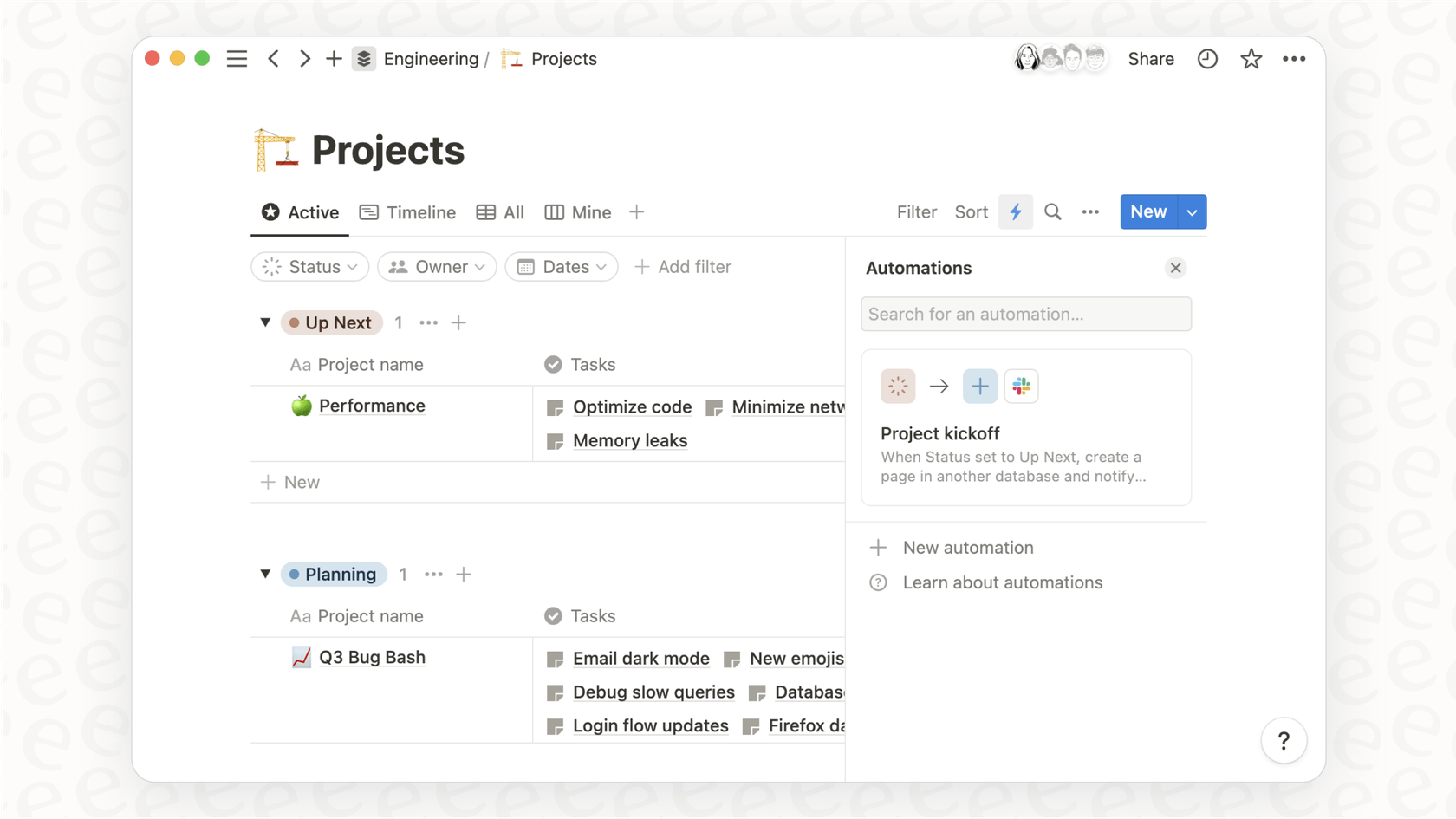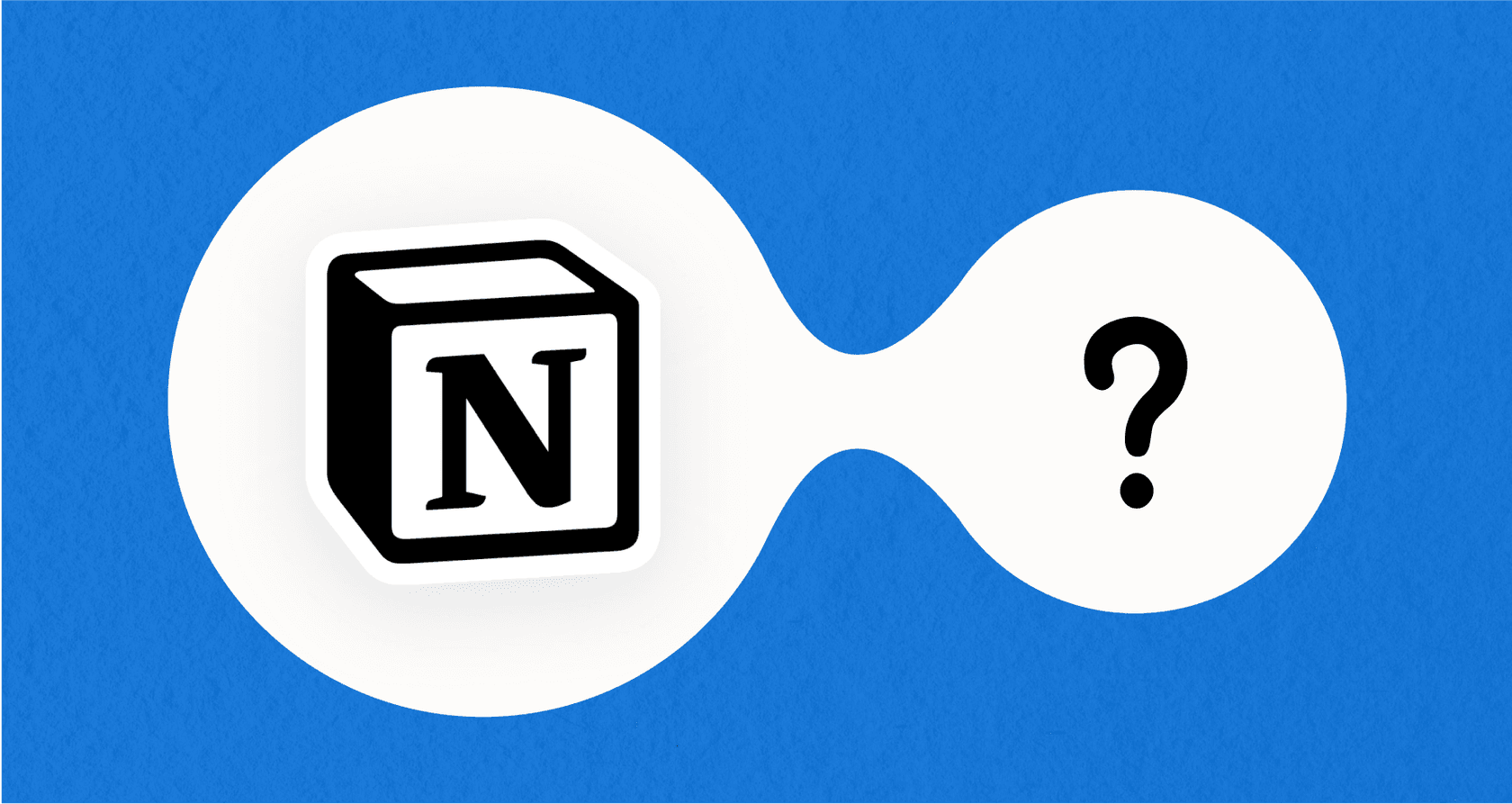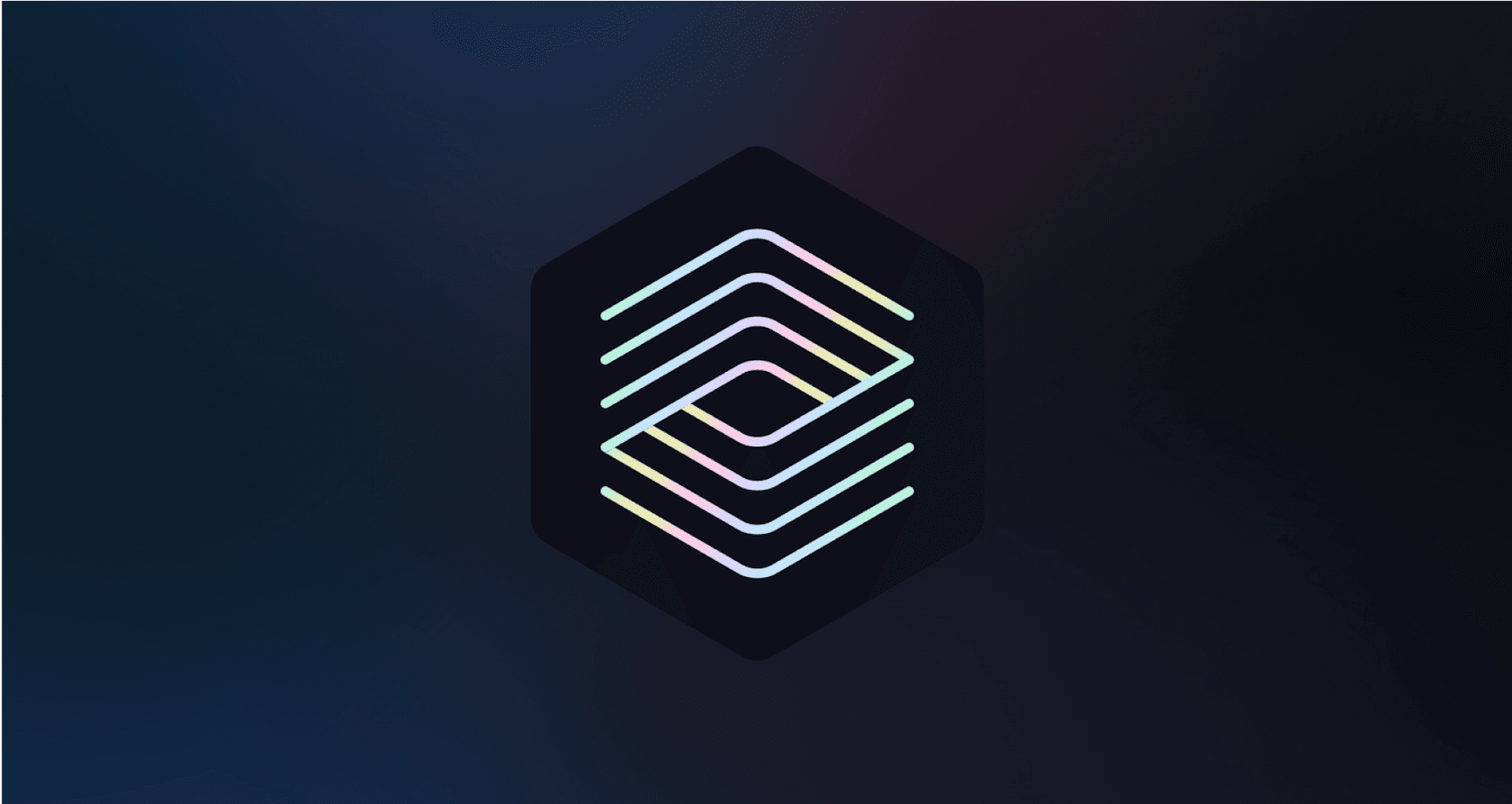
Notion AI positions itself as the all-in-one assistant for your all-in-one workspace. It's a great pitch, right? But if your team has tried to use it for serious business tasks, you might have felt the gap between the promise and the day-to-day reality. When you move past personal notes and into complex workflows, some cracks start to appear.
This guide is an honest look at Notion AI Limitations & Best Practices. We'll talk about where it's genuinely useful for personal and team productivity, because there are some clever ways to get a lot out of it. But we’ll also get real about where it falls short for more demanding business processes. By the end, you should have a much clearer idea if it's the right tool for you, or if you need something more specialized.
What is Notion AI?
Think of Notion AI as a smart assistant that lives directly inside your Notion pages. It's not a separate chatbot you open in a new window; it's more like a partner that's right there with you as you write, edit, and organize your work. Its main job is to help you with tasks like summarizing long documents, brainstorming ideas, or finding information you’ve already stored somewhere in your workspace.
The real magic is its context awareness. It knows what's on the page you're working on and can use that information to help you out. For anyone who's already deep in Notion for managing projects and documentation, it feels like a very natural extension of how you already work. It’s designed to make content-related tasks a whole lot faster.

Notion AI best practices
Let's give credit where it's due: Notion AI has some real strengths. If you play to its advantages, it can be a huge help for certain kinds of work. Knowing where it shines is the key to getting your money's worth.
A writer's best friend
If you work with words, Notion AI can be a fantastic thought partner. It really excels at manipulating text.
-
Summarizing in a snap. This is hands-down one of its best features. Got a ten-page document of meeting notes or a dense research article? Just ask Notion AI to pull out the key takeaways. In seconds, you get a clean summary without having to reread everything. It's perfect for catching up on things quickly.
-
Switching up your tone. Ever write a technical update and then realize you need to explain it to a non-technical client? This is a classic time-sink. Instead of rewriting it yourself, you can ask Notion AI to adjust the tone to be more professional, casual, or friendly. It's also great for just improving the general flow and clarity of your writing.
-
Kickstarting your brainstorm. When you’re staring at a blank page, Notion AI can be a great way to get the ball rolling. Instead of jumping over to another tool, you can generate ideas for blog posts, project names, or marketing angles right inside your project doc. It helps keep your creative process all in one place.

Making knowledge bases smarter
For anyone who lives and breathes Notion databases, AI Properties are a pretty slick feature. They let you run AI actions automatically on all the entries in a database. The main tricks it can do are generating summaries, keywords, or even translations.
Here’s a real-world example: say you have a database where you log all your team meeting notes. You could add an "AI Summary" property. Once you set it up, Notion AI will automatically read the content of each new meeting page and write a short synopsis in that property field. Suddenly, your entire database is scannable. Anyone on the team can get the gist of a month's worth of meetings without having to click into a single page. It's a genuinely clever way to make your stored information easier to access.

Searching connected apps
Notion AI also has connectors for a few other common tools, like Google Docs and Slack. This lets you stretch its search function beyond the borders of your Notion workspace.
The main benefit here is convenience. You can be in Notion and ask a question like, "What did we decide about the Q3 budget?" and it might pull an answer from your Notion pages, a specific Google Doc, and a relevant Slack thread. It cuts down on the app-switching you have to do to find basic information, which helps you stay focused.
The limitations of Notion AI
While Notion AI is a solid helper for content and internal knowledge, its limits become painfully obvious when businesses try to use it for core operational workflows. The "all-in-one" philosophy that makes Notion so great for documentation starts to feel pretty restrictive when faced with real-time business needs.
Pricing models
One of the first hurdles teams run into is the cost. It used to be that you could add Notion AI to any plan, but that's no longer the case. Now, to get unlimited access, you have to subscribe to their pricier Business or Enterprise plans.
If you’re on the Free or Plus plan, you get a one-time trial of just 20 AI responses. That’s barely enough to test it out, let alone figure out if it's a good fit for your team. Once you use those 20 prompts, they’re gone for good.
To get unlimited AI, your whole team has to upgrade to the Business plan, which runs $20 per user, per month (billed annually). For a small team of 10 people, that's an extra $2,400 a year. That's a big jump in cost, especially if you only need the AI features for a few specific tasks and don't really need the other features of the Business plan. It makes it tough to justify the expense unless your entire company lives and breathes Notion.
| Plan | Price (billed annually) | Notion AI Access |
|---|---|---|
| Free | $0 | Limited trial (20 responses, one-time) |
| Plus | $10 per seat/month | Limited trial (20 responses, one-time) |
| Business | $20 per seat/month | Included (Unlimited, subject to fair use policy) |
| Enterprise | Contact Sales | Included (Unlimited, with zero data retention) |
The "walled garden" problem
The funny thing is, Notion AI's biggest strength is also its biggest weakness. It's fantastic at understanding the information you've already put inside Notion.
But what about information that lives outside of it? Most important business workflows rely on live data from other systems. Imagine a customer support agent trying to use Notion AI. They can't ask, "What's the shipping status of order #12345?" because Notion AI has no way to look that up in a live Shopify database. The best it can do is search for any text inside Notion that mentions that order number, which is almost never what the agent actually needs.
This "walled garden" approach makes it a non-starter for any process that needs up-to-the-minute information. Think customer service, IT support, logistics, or sales. It operates on a static copy of your knowledge, completely disconnected from the dynamic, real-time world where your business actually operates.
The automation gap
There's a huge difference between what Notion AI calls "automation" and what a business actually needs for process automation. Notion AI can autofill a database property based on the content of a page. It's a neat trick for organization, but it's a passive, one-time action.

A true AI agent built for business needs to execute active, multi-step workflows. Let's go back to that customer support agent. A proper AI agent handling a support ticket would need to:
-
Read and understand what the customer is asking for.
-
Triage the ticket by assigning the right priority, category, and maybe even a specific team member.
-
Look up the customer's order history or account status in an external system like a CRM or e-commerce platform.
-
Decide if it has enough info to give an accurate answer or if it needs to escalate to a human.
-
Update the ticket status in the help desk system (for example, changing it from 'New' to 'Pending').
Notion AI just wasn't built for this. It's designed to create and manage content inside Notion. It can't run processes across the specialized tools that actually power your business, like your help desk, CRM, or inventory management system.
An alternative to Notion AI: AI agents for business workflows
When the limitations of an in-doc assistant start to hold you back, you need a tool that was designed from day one to automate real work. This is where a solution like eesel AI comes into the picture. It isn't just another AI writer; it's a platform for building and deploying AI agents that can handle those complex, multi-step workflows we just talked about.
Go beyond search with an autonomous agent
eesel AI is designed to do things, not just find things. It integrates directly into your core business systems, like help desks from Zendesk, Freshdesk, and Intercom, to automate your frontline support.
eesel AI Agent automatically answering and resolving a ticket in Zendesk. So, instead of just summarizing old tickets for you to review, an eesel AI agent learns from them to resolve new tickets all on its own. It can manage the entire lifecycle of a customer request: answering common questions, escalating tricky issues to the right human, tagging tickets for reporting, and even taking custom actions in other systems through API calls.
Unify all your knowledge
While Notion AI can connect to your documents, eesel AI connects to your entire knowledge ecosystem. It pulls information from your help centers, macros, past ticket resolutions, Confluence pages, and Google Docs. More importantly, it can also connect to live data sources from your business tools.
This unified knowledge base gives it the deep, context-aware understanding it needs to provide accurate answers and take the right actions. With eesel AI, you get an AI that understands the specific nuances of how your business works, not just the words written on a page.
Go live in minutes
Getting started with a powerful new tool shouldn't require weeks of setup and a leap of faith. eesel AI has a simple, self-serve setup that can get you up and running in just a few minutes.
One of its standout features is the simulation mode. Before your AI agent ever talks to a real customer, you can test it on thousands of your past tickets in a safe, sandboxed environment. This shows you exactly how it would have performed, what percentage of tickets it could resolve, and what your potential return on investment looks like. You see all of this before you flip the switch. It takes all the guesswork out of the process and gives you the confidence to start automating.
| Feature | Notion AI | eesel AI |
|---|---|---|
| Primary Use Case | In-workspace content creation & knowledge search | Autonomous support, ITSM, and internal Q&A automation |
| Setup Time | Days to weeks for complex setups | Go live in minutes, truly self-serve |
| Automation Capability | Basic autofill & content generation | Fully customizable workflow engine with triage, escalation & API calls |
| Core Integrations | Document & chat apps (Google Drive, Slack) | Deep helpdesk & business systems (Zendesk, Shopify, etc.) |
| Testing & Rollout | Manual trial and error | Risk-free simulation on historical data & gradual rollout controls |
| Pricing Model | Bundled into expensive per-seat plans | Transparent, predictable plans with no per-resolution fees |
Choose the right tool for the job
So, what's the bottom line? Notion AI is an excellent tool for boosting your personal productivity and managing knowledge within the Notion ecosystem. Its strength is helping you work faster with the content you create. Think of it as a powerful writing partner and a very clever organizational assistant.
But for the business-critical, automated workflows that keep your company running, you'll likely hit a wall. The pricing model, lack of real-time data access, and limited automation capabilities become major roadblocks. It's a great tool for thinking, but not a great tool for doing.
By all means, use Notion AI as your personal assistant inside your digital notebook. But when you need an autonomous agent to handle your frontline support, automate ticket workflows, and connect with all your business tools, you need a platform that was built for that specific job. That’s where eesel AI steps in, giving you the power, control, and simplicity your team needs.
Ready to see what a true AI agent can do for your team? Simulate eesel AI on your past tickets and see your automation potential in minutes.
Frequently asked questions
Notion AI excels at content creation, summarization, and internal knowledge management within the Notion ecosystem. However, its limitations include a restrictive pricing model, inability to access live external data, and a lack of true multi-step workflow automation for business-critical operations.
Notion AI operates within a "walled garden," meaning it primarily understands data already inside Notion. It cannot connect to live external systems like CRMs or e-commerce platforms to fetch real-time information, making it unsuitable for workflows requiring up-to-the-minute data.
Free and Plus plans offer a one-time trial of 20 AI responses. To gain unlimited access, teams must upgrade to the pricier Business or Enterprise plans, which can significantly increase per-user costs, making it a substantial investment for full team adoption.
For text-based tasks, Notion AI is highly beneficial. It excels at summarizing documents, adjusting writing tone, brainstorming ideas, and making knowledge bases more scannable through automated AI properties in databases.
Notion AI's automation is largely passive, like autofilling database properties. True AI agents, like those offered by eesel AI, can execute active, multi-step workflows by interacting with multiple external business systems and performing actions like triaging tickets or updating statuses.
Notion AI is best suited for individuals or teams focused on personal productivity, content creation, and organizing internal knowledge within the Notion workspace. It functions well as a writing partner or an organizational assistant, but not for complex, operational business processes.
Share this post

Article by
Stevia Putri
Stevia Putri is a marketing generalist at eesel AI, where she helps turn powerful AI tools into stories that resonate. She’s driven by curiosity, clarity, and the human side of technology.







